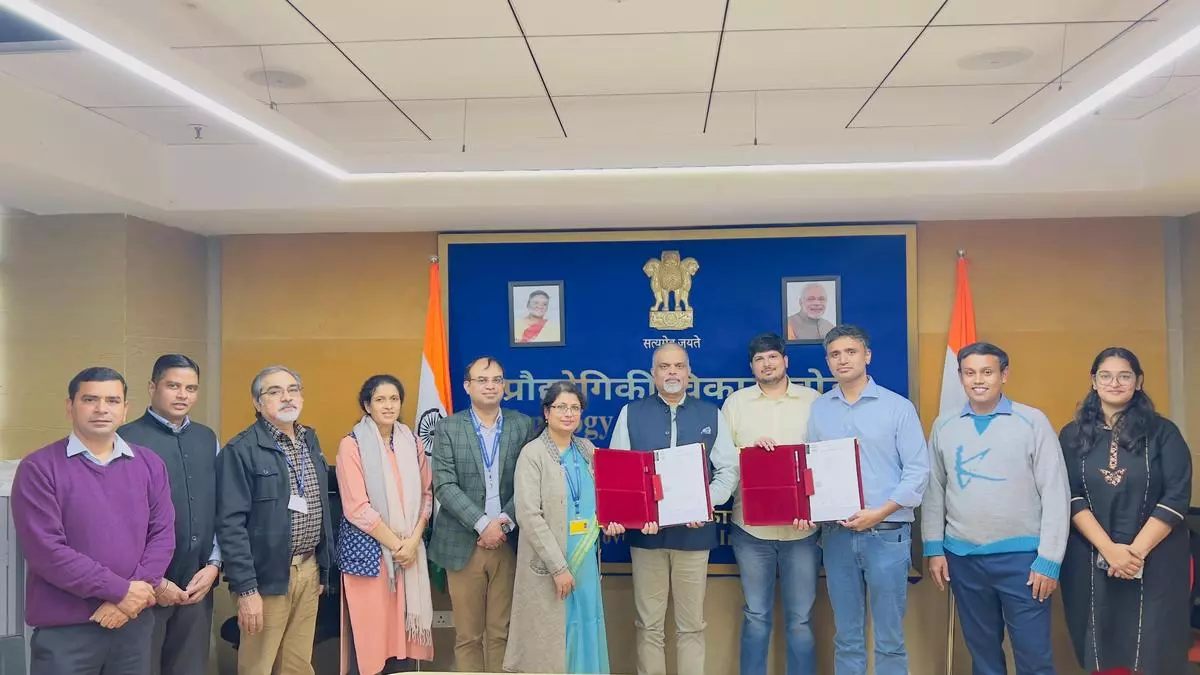Union Ministry of Science & Technology on Tuesday announced support to the Chennai-based Agnikul Cosmos Chennai to develop and commercialise Agnibaan, a customisable two-stage launch vehicle capable of delivering payloads of upto 300 kg to orbits at 700 km altitude.
This initiative was supported by the Technology Development Board (TDB), a statutory body under the Department of Science & Technology (DST), says a release.
TDB has sanctioned financial assistance for the “Development and Commercialisation of Modular Configurable Launch Vehicle for 100 Kg Payload.” The project aims to make satellite launches more accessible, efficient, and affordable.
Agnikul Cosmos, incubated at IIT-Madras, achieved a milestone with the maiden launch of Agnibaan SOrTeD, the world’s first flight using a single-piece 3D-printed rocket engine, in May.
Agnibaan offers dedicated, scalable launches for payloads ranging from 30 to 300 kg; reduced lead times for satellite launches to just two weeks; operational flexibility with mobile launch systems deployable globally and customizable space missions for small satellites, eliminating inefficiencies of traditional rideshare models.
It also incorporates several indigenous technological advancements like India’s first single-piece 3D-printed rocket engine and other critical components; mobile launch platforms capable of enabling launches from any location globally and development of all major subsystems, including engines, mission control systems, and launchpad infrastructure, the release said.
Rajesh Kumar Pathak, Secretary, TDB, said Agnikul Cosmos, supported by TDB, embodies this success, showcasing India’s indigenous talent and the spirit of Atmanirbhar Bharat while setting new benchmarks in space technology commercialisation.”
Srinath Ravichandran and Syed Peer Mohamed Shah Khadri, Founders of Agnikul Cosmos said, “We started as a start-up at IIT Madras in a DST supported lab (NCCRD). Now, after having built some new technology, this financial assistance coming in through TDB is a strong sign of encouragement and support for all of us in the team to build world class space technology hardware from India.”
